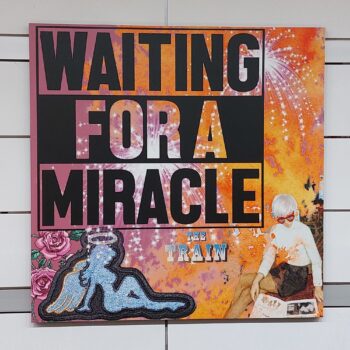
We are all born with the basic need to feel seen, heard, appreciated and loved. Also, to varying degrees, we all need someone to share our thoughts, feelings, activities and wordly things with. Sharing our feelings with another person is of particular importance, may it be pleasurable ones of joy and love, or painful ones of worry and sadness, or just modest feelings of everyday character.
As children, we naturally turn to our parents for expressing our feelings and sharing our daily experiences, and to receive confirmation, appreciation, compassion, love, or support in return. Yet, most parents (naturally) tend to have lots on their mind and are not always able to be fully present with the child (mentally, emotionally and/or physically). Although some people may be highly skilled listeners, most parents are now and then unable to find the time, energy, and peace of mind to devote their full attention to the child. Most, if not all children, have experienced moments when they sought a parent’s presence yet sensed his/her absence to some degree. In those moments, the parent may not have been conscious about his/her absent-mindedness, or was at least not neglectful on purpose. If loving and undevoted attention is given on a general basis, an occasional neglect hardly has a lasting impact on the child’s well-being and development. Yet, repeated or long-term neglect (or “conditioned” attention on the parent’s terms) can make the child draw false conclusions about his/her self-worth and the risks of self-expression.
Forming beliefs for emotional protection
If a child experiences mental and emotional absence of a parent on a repeated or consistent basis, the child will eventually draw conclusions (unknowingly) about his/her self-worth. Over time, the child may develop a belief that “it is not okay or safe to share my thoughts and feelings with another person, because if I do, I may get hurt.” This subconscious belief can also be summarized as:
a child experiences mental and emotional absence of a parent on a repeated or consistent basis, the child will eventually draw conclusions (unknowingly) about his/her self-worth. Over time, the child may develop a belief that “it is not okay or safe to share my thoughts and feelings with another person, because if I do, I may get hurt.” This subconscious belief can also be summarized as:
“If I share my thoughts or feelings with another person, I will be [ignored, misunderstood, unseen or unheard] and then I will feel [unloved, unimportant or lonely], which could mean that I am unworthy of attention, appreciation, and loving presence.” (Note: Choose the approriate words in the brackets.)
It was never about you and your worthiness
In my coaching practice, I often hear about clients’ experiences of having been neglected, inadequately attended, or given only conditioned attention, either by one or both parents, and how this has affected them in painful ways.

If you are familiar with this pattern from your own life, it is important that you seek to find the real reasons WHY your parent was unable to give his/her full attention and unconditional presence to you as a child (whether it occurred at certain times or regularly). When we understand the actual underlying reasons, we will realize that the neglect was never about us or our worth. Instead, it will become clear that it was always and only about the parent’s limited capacity or ability to give undivided attention and loving presence in each moment. In the second that we recognize this truth, we will be able to let go of the false belief that the lack of attention and loving presence was because of our limited worthiness. The words that the client receive during the healing process from the parent (as silent words) are always: “I didn’t know better”, “I couldn’t do better”, or “I didn’t dare more”, or something similar.
Going deeper into the essence
How do we learn about the true cause(s) of any lacking or inadequate presence from a parent? First, we need to be willing to go within and back in time to the actual hurtful experience. Secondly, we need to find a coach or therapist that can lead us into such a deep state where we are able to re-experience those moments of interaction with the parent. Thirdly, in that “imaginary state” (which feels fascinatingly real) we need to be willing to feel those painful emotions again, yet now even more fully. As we re-live the hurtful experience as a child in the imaginary state (yet supported by the higher understanding and courage of ourselves as adults), we also have the ability to feel into our parent’s inner state and what hindered him/her from being present with us in that moment. Then and there, we are able to receive the full truth of the situation from both perspectives (as the child and the parent). With this fuller understanding, we are able to accept the hurtful events of the past and to forgive our parent for not being fully and lovingly present with us in those moments. The inner scene that unfolds in this “therapeutic state” is one of unconditional love, peace, and a new level of freedom. After many times of guiding clients through this journey of healing and transformation, I gave it the name “Into Essence” (as in finding the inner essence of the situation, the parent, and the child).
The 12 “P’s” that may prevent full presence
What may hinder a parent (or any person) from being fully and unconditionally present? Over the years, I have come across a number of possible causes that may prevent a parent (or person) from being fully present with the child to receive and share the child’s thoughts and feelings. These factors can be summarized as 12 words (all beginning with the letter P):
- Problem – the parent is immersed in some sort of problem, may it be practical, intellectual, relational, private or work-related.
- Plight – the parent is prevented or preoccupied by certain plights, either for work or as household chores.
- Profession – the parent is often obliged to attend to its professional demands and expectations. For example, work-related travel and certain deadlines may prevent parents to be present with the child at certain periods or weekdays.
- Project – the parent is focused on a project, either work-related or home-based, that needs to be finished at a certain time.
- Passion – the parent is so passionate about something in his/her personal life that it hinders full presence with the child in certain moments of need.
- Pain – the parent is hindered by his/her own pain (physical and/or emotional).
- Poor energy or health – the parent is unable to be fully present due to low energy (due to exhaustion or depression) or other health conditions.
- Persona – the parent is preoccupied by a focus on his/her own personal matters and interests.
- Privacy – the parent’s personality causes a high degree of privacy towards others, which makes him/her unable to be fully present with the child.
- Pride – the parent is too pride (for whatever reason) to acknowledge the child and to give of his/her full and unconditional presence.
- Poverty – the parent is unable to spend time with the child for economic reasons, perhaps after a separation and subsequent move to another town.
- Prison – in rare cases the parent may be in prison for a certain time period and is unable to be with the child.
Most persons have experienced at least two or more of these conditions on some or many occasions in their lives (the last two factors being very rare). Yet, this may not lead to any negative consequences for our well-being and self-worth, unless it happened in a significant way or repeatedly.
It is important to remember that a child not only needs to share his/her pleasures (such as joy, enthusiasm, love, gratitude, etc), but also feelings of pain (such as sadness, upset, anger, fear, etc) with a parent. In fact, all children need to experience both “co-pleasure” and “com-passion” with some parent or caretaker in order to feel confirmed, validated and loved, which will lead to healthy levels of self-love, self-worth, and inner confidence.
 The value of “co-pleasure” and “com-passion”
The value of “co-pleasure” and “com-passion”
Why is the gift of presence important? If we, as children, rarely (if ever) felt welcome and encouraged to share our joy and enthusiasm with a parent, we will not feel fully confident to share our joy and enthusiasm with others as adults. Similarly, if we did not feel safe to share our pain with a parent, we will not dare to express our sorrow, hurt and similar feelings as adults. Subconsciously we may live with the belief that “No one cares about how I feel”, or “I am not worthy of care, compassion and support”. Such beliefs are most likely based solely on misunderstandings and false conclusions, based on the child’s limited understanding of life, him/herself, and of the parent. The child tends to identify negative events as the results of his/her own worthiness, mistakes, or flaws. Yet, nothing could be further from the truth. When we recognize how we might have drawn false conclusions based on our limited understanding as children, we become free from the fears and self-imposed limitations that we once created to protect ourselves from getting hurt again in a similar way.
In truth, you are always free to be and express yourself in any way that you wish (*as long as it does not cause harm to someone else by will). In fact, there are no real hinders for your free and full expression. To be able to share our true feelings with another person is not only essential for living a fulfilled life, but also a key ingredient for healing and long-term well-being. Reminding ourselves of what we loved as children is a very good start…
Warm blessings on your journey of self-discovery, growth and healing,
Anna
(PS. This article was first made as a newsletter and sent out in October 2022. If you wish to subscribe, please send an email and I will add you as newsletter subscriber.)

(Note. The list of the 12 Ps was updated on August 5th, 2024.)



